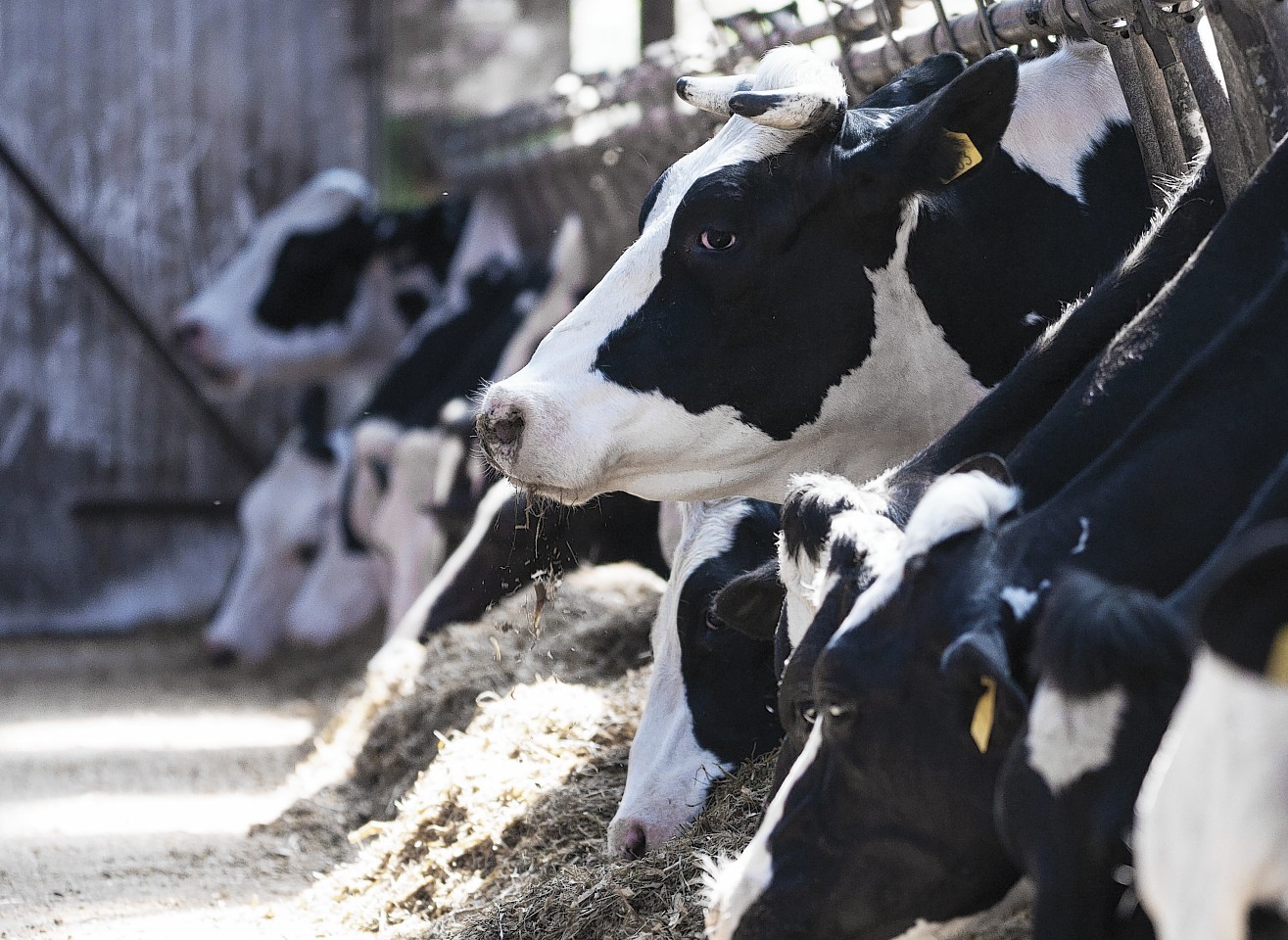Livestock producers are being urged to take steps to prevent grass staggers in cattle still being fed on silage.
According to SRUC, there is an increased risk of grass staggers, or magnesium tetany as it is formally known, due to this winter’s extreme weather.
Veterinary investigation officer George Caldow, of the SAC Consulting division of SRUC, said the condition can lead to hyper-excitability, muscular spasms, convulsions, respiratory distress, collapse and even death.
He said: “Magnesium is essential for metabolism and the requirement increases at times of stress. Furthermore cattle rely on a steady intake of magnesium and heavy rainfall can interfere with the normal food intake of cows so that magnesium intake becomes critical.”
Pregnant spring-calvers would normally have their nutritional requirements met by eating big bale silage, however the bad weather means this may not be sufficient to meet cows’ specific requirements for minerals and vitamins.
“Although cattle are well designed to withstand very low temperatures, they are less well adapted to continuous rain which is what they have had to face over the last four – five weeks,” said Mr Caldow.
“This continual drain on their heat reserves when coupled with a deficiency of magnesium can result in magnesium tetany. While all producers are well aware of the risk of tetany to cows suckling calves at grass in the spring, it is not commonly expected in the middle of winter. Our advice is therefore for all producers with outwintered stock, particularly cows, to ensure they are adequately supplemented with a suitable magnesium supply daily.”
